by Al Tizon
Postcolonial trauma requires a long-term, lifelong process of healing, and peacemakers have a role to play in that healing. Peacemaking may sound like warm-and-fuzzy work, but the ministry of reconciliatory healing involves excruciating pain. I liken it to “fracture resetting”—a surgical procedure, which seeks to fix a once-broken bone that set incorrectly over time as it was left to heal by itself. The procedure requires re-breaking the bone—not a pleasant thought. In fact, a shiver just shot through my entire body as I read this! Peacemaking, as part of the healing process, breaks bones and resets them en route to genuine reconciliation in Christ.
The problem lies in the fact that we get used to our deformities. To be sure, prejudice, bitterness, and hatred constitute deformities of the soul—improperly set bones that were broken by injustice, and thus, crippling and disabling us so that we cannot walk toward other people, especially those who crippled and disabled us. We get used to the immobility, the limp, the alienation from the Other. We convince ourselves that the enmity between us and them is just the way it is. The art of peacemaking attempts to convince the deformed to undergo fracture resetting in order to be healed and reconciled in Christ. Of course, peacemakers themselves are also deformed and continue their own healing journey, making them what Henri Nouwen famously described as “wounded healers.”1 With great empathy because we are wounded ourselves, we seek to turn pain into healing pain, to re-break the broken bones of all involved, and then to reset them in Jesus’ name and by the power of the Spirit, so that all can once again walk toward one another as we undergo God’s healing.
Deformity describes both sides of any conflict, but not in the same way. Different bones need resetting on the two sides, and relational healing toward peace requires knowing the difference. Furthermore, it requires knowing that the difference does not just mean not the same; it also means not equal. As Munayer and Loden explain, “In every conflict one side is more powerful than the other.”2 At first, I did not agree with this statement, but as I reflected on the various conflicts in which I have been involved (either as participant or mediator), I have experienced the truth of it. Whether a husband having the emotional upper hand in a marital crisis over his wife; or a larger tribe having more say in an organizational or church dispute than a smaller tribe; or a majority culture having the political positioning in a racially-charged conflict over a minority culture; the conflict, more often than not, has consistently proven the inequality factor. To the extent that peacemakers discern, identify, and acknowledge the power differential, they can help guide the two sides in the healing process.
With this power differential in mind, peacemakers guide conflicted parties to assume what I call postcolonial postures toward peace.
To Wrongdoers: Repent!
In the case of the more powerful in a broken, conflicted relationship, those who by their power have leveraged advantage at the expense of the weaker, the primary message is this: Repent! They must assume the posture of repentance. God calls on oppressors, abusers, terrorists, colonizers, rapists, johns, and even unknowingly complicit beneficiaries of unjust systems to repent, to turn from their wicked ways, and to confess their sins to God and to the people they have harmed. Repentance re-breaks the bone of perpetration that malformed the powerful into oppressors, and it resets it toward justice and reconciliation.
And contrary to the misconception that repentance is a one-time act, peacemakers urge wrongdoers to assume a lifelong posture of repentance, i.e., humility.
Peacemakers cannot water down this message; repentance is the essential part that wrongdoers play in the healing process, not only for the sake of the healing between them and their victims, but also for the sake of their own healing. Peacemakers need to call them to repentance, yes, with love and grace, but they cannot mince words here. As mediators, peacemakers have the propensity to encourage both sides of a given conflict to own the part each party has played in the conflict. But in light of the power differential, peacemakers turn into prophets, as they call perpetrators to repentance.
For “God is not evenhanded,” Desmond Tutu said in a Time interview, “God is biased, horribly in favor of the weak. The minute an injustice is perpetrated, God is going to be on the side of the one who is being clobbered.”3 This more than implies God’s judgment upon those doing the clobbering! Rene Padilla pulls no punches when he writes, “In any situation in which power is misused and the powerful take advantage of the weak, God takes the side of the weak. In concrete terms, that means God is for the oppressed and against the oppressor, for the exploited and against the exploiter, for the victim and against the victimizer.”4 Nothing less than heart-wrenching repentance of Ninevite proportions would cause God to relent from meting out severe judgment on the wicked (Jonah 3:6-10).
When wrongdoers truly do repent, however, God shows mercy, as the story of Jonah clearly demonstrates. As we know, the outrageous extent of God’s compassion toward the truly repentant infuriated Jonah, so much so that he preferred his own death than to see God spare the evil Ninevites (4:3, 9). Blinded by hatred, Jonah could not (or refused) to see the Ninevites as human beings—people who bear the image of God and who had most probably been victimized themselves before they became victimizers. As Célestin Musekura, founder and president of the African Leadership and Reconciliation Ministries (ALARM), reminds us, “Abusers are victims before they become perpetrators.”5 In that light, why would God, who desires all to be whole and reconciled, not relent from meting out judgment upon the truly repentant (Jonah 4:6-11)? With God’s judgment lifted, wrongdoers begin to heal, and they position themselves to contribute to the peace and healing process.
To the Wronged: Forgive!
“Repent!” shouts the peacemaker-prophet to wrongdoers. With equal urgency, they also carry an ultimate message to the wronged. The message of peace to the wronged that leads to healing is this: Forgive! And like the act of repentance for wrongdoers, the act of forgiveness for the wronged makes possible both relational and inner-healing. Victims of wrongdoing need to forgive for the sake not only of the peace process, but for the restoration of their own souls.
To urge the wronged to forgive, however, in my kingdom estimation, constitutes the greater ask. Yes, perpetrators will need the help of God to repent humbly and sincerely; but for the colonized, the abused, the enslaved, the raped, the widowed, and the orphaned to forgive their victimizers requires a double measure of God’s intervening presence. We can view it as the need to re-break and reset multiple bones instead of just one. Loved ones murdered, interrogation, imprisonment, torture, the confiscation of property, the betrayal of a spouse, the sexual abuse of a child, and so on: these memories severely cripple the soul, and for some, the body.
I think of Ruach, a 25-year old South Sudanese Christian man who, because of his strong faith, was thrown by a Muslim rival in front of a machine that amputated his right leg and crushed his testicles. When our partners in South Sudan notified us of this tragedy, we responded immediately by sending emergency funds to obtain the urgent medical help needed. After months of life-and-death struggle, Ruach survived the attempted murder; he is recovering and getting stronger. But his deformity is permanent. The loss of his leg, his manhood, and the possibility of ever fathering a child will remind him always of the crime committed against him. I see his permanent physical crippling mirroring the incomprehensible crippling in his soul. And I thought to myself intensely, how dare us peacemakers come to Ruach and his family (his father is a pastor) and tell them to forgive the Muslim man who pushed him in front of that machine. How dare we preach forgiveness toward the one who pushed him, and for that matter, all the misguided Muslims, who persecute, maim, and kill Christians in the name of Allah.
Indeed, forgiveness constitutes the harder ask in the peacemaking process. For humanly speaking revenge makes much more sense for Ruach and his family. Retributive justice demands retaliation. The wrongdoer must pay. An eye for an eye. A tooth for a tooth. A leg for a leg. A testicle for a testicle. Let us gather an army of vigilantes and avenge our son and our brother. Let us destroy the man, his family, and his whole village in the name of the Lord! And the vicious cycle of violence spins on.
The only power capable of breaking this cycle, and thus defy the logic of revenge, cannot ultimately come from ourselves; the crippling of our souls prevents that. It must come from the Holy Spirit who alone can empower us to forgive. “Forgiveness from the heart is a supernatural act,” says Musekura.6 Grounded in the radical forgiveness of God in Christ extended toward all—all!—the redeemed learn in the Spirit to love their enemies. Peacemakers preach supernatural forgiveness, hard as it is, because in Christ, God has forgiven us (Mt. 18:21-35; 1 Jn. 4:19). Musekura, a victim himself of tremendous loss of family members and friends in the Rwandan genocide of 1994, declares nonetheless that forgiveness constitutes the heart of the gospel, and therefore, the core of our identity in Jesus Christ. “As people who have been forgiven, we have no choice [but to forgive also].”7 Beyond the obligation to forgive, however, our lives in the Spirit produce fruit (Gal. 5:22-23), which renews our hearts, minds, and actions, and thus, make us capable of forgiving those who have wronged us.8
As foundational as this theology may be to the possibility of forgiveness, it feels inauthentic and shaky without building upon it the healing of memories. The adage, “Forgive and forget” misguides in so many ways, and peacemakers would exacerbate its wrongheadedness if they seek to help victims try to forget what happened to them. Besides, can someone like Ruach really forget the incident that cost him his leg, his testicles, and what undoubtedly will be years of medical complications and emotional anguish? How can the oppressed, the enslaved, the tortured, the raped, the sold, and the betrayed possibly forget? Psychologically speaking, to forget horrors done to us requires disassociation, which creates disorders such as amnesia, long-term repression, multiple personalities, etc. Peacemaking cannot be about telling the wronged to simply forget the past based on their new identity in Christ. Peacemaking cannot be about creating a Christ-centered disorder!
The healing of memories, in contrast, does not mean forgetting, but rather, “remembering rightly” or redeeming the pain of past wrongs.9 This goes beyond semantics. Whereas forgetting conveys erasing the offense and thus attempt never to think about it again, remembering rightly involves revisiting the horror of the offense and going through the pain again—rebreaking the bone—but this time bringing the crucified and risen Christ into the situation, resetting the bone with radical love toward their victimizers. As Miroslav Volf asserts, “To remember rightly wrongs that we have suffered is to remember them through the lens of the memory of Christ’s death and resurrection.”10 Remembering rightly means remembering both the suffering and the victory of Christ for the sake of all, even as, and especially when, we revisit those places of deep pain. Only within the framework of Christian hope can we learn and practice the miracle of forgiveness.
Of course, I speak only of the theological angle regarding healing from trauma, which is incomplete in and of itself. In addition to remembering rightly by inviting the Spirit of Christ to accompany us back to those painful places, we should also, as a ministry of referral, urge the wronged to be in deep PTSD therapy under the care of qualified professionals. Furthermore, peacemaking involves discerning if and when the time is right for victims to revisit the past publicly, that is, with their victimizers present. And ideally, upon hearing their painful stories, victimizers repent in sackcloth and ashes. Peacemakers would want nothing better than to witness Forgiveness and Repentance dance, and thus, celebrate the beginning of genuine Reconciliation between the victim and the victimizer.
However, to forgive does not depend on whether wrongdoers repent (just like to repent incidentally does not depend on whether the wronged forgive). The wronged cannot control the response of wrongdoers. If they do not repent, then forgiveness becomes more about the victims’ liberation; they have, by the posture of forgiveness, freed themselves from tortured memories. This is not insignificant, though admittedly, without the repentance of the wrongdoer, reconciliation cannot happen. Neither can it happen if the wronged do not forgive. For the sake of their own healing and for the possibility of people-to-people reconciliation, therefore, peacemakers urge victims of wrongdoing to claim their identity in the crucified and risen Jesus and to extend, by the power of the Spirit, the miraculous hand of forgiveness.
To the Wrongdoer and the Wronged: Lament!
One more posture toward peace, which has proven crucial for the healing process, deserves our attention. Peacemakers call victimizers to repent; they call victims to forgive; and then at some point, they call both victim and victimizer to lament, and to lament together. “Lament in the Bible,” writes Soong-Chan Rah, “is a liturgical response to the reality of suffering and engages God in the context of pain and trouble.”11 It refers to a passionate expression of deep sorrow, often accompanied by unabashed complaining, loud wailing, deep groaning, and seething words against unjust systems, cruel regimes, great loss of life, crimes against humanity, and the seeming absence of God even as it assumes that hope can be found only in God.
Though lament has both personal and communal dimensions to it, the latter proves most valuable to peacemakers, as communal lament enables the public expression of pain. Further, it provides an opportunity for both victim and victimizer together to bring complaints and petitions to God. As Rah explains, “Communal lament draws from the whole community, and a collective voice rises up in lament.”12 Besides the book of Lamentations attributed to the prophet Jeremiah, 65 out of the 150 psalms can be considered laments. Most of them are personal in nature penned by David, either while being chased or hunted down and/or in exile; but some decidedly express the anguish of a nation (Ps. 12, 44, 74, 80).
Several years ago, I was asked to open a community development consultation in South Africa to set the tone for a week of partnership-building presentations and activities. At the risk of beginning the event with a downer, I led the participants, comprised of both African and North American Christian workers, in a time of communal lament. It did not feel right in a gathering on partnership in development to gloss over the history of colonialism and the part that the Western church played in it, and which undoubtedly the African participants continued to experience in one form or another. I named the Western church’s centuries-long collusion with the colonial project by way of the missionary enterprise. But rather than simply give a hollow apology on behalf of Western missions, which in my view, would have felt ironically colonial (a one-way act initiated and done by the powerful to the less powerful), I offered an alternative—an opportunity to lament the colonial past together.
I facilitated a group recitation of several general postcolonial laments.13 Then afterwards, I encouraged anyone and everyone to cry out with laments, specific to their contexts. Though there was no crying out, almost everyone spoke. In each other’s hearing, participants shared honestly and sincerely. While most of the Africans shared the pain of suffering losses and indignities related to the colonial spirit past and present, those from North America confessed varying degrees of participation in condescending and paternalistic attitudes and/or behaviors. Communal lament created a space ripe for repentance and forgiveness. When it felt right to cap the time, we recited together, “Have mercy on us, O Lord. Empower us to sin no more and to champion the justice and peace of the gospel.”
Communal lament has a powerful role to play in the peace process, which can lead to reconciliatory healing, as it provides the opportunity to repent and forgive, and to come before God together with both honesty and hope. As wounded healers, peacemakers engage empathetically in the hard, painful work of repentance, forgiveness, and lamentation among broken, conflicted peoples. These postures contribute greatly to “the reconciliation of all things in Christ.”
- Henri Nouwen, The Wounded Healer (New York, NY: Image/Doubleday, 1990).
- Munayer and Loden, Through My Enemy’s Eyes, 225.
- Desmond Tutu, quoted in Alex Perry, “The Laughing Bishop,” Time (11 October 2010), 42.
- Padilla, “God Call to Do Justice,” 24.
- Celestin Musekura and L. Gregory Jones, Forgiving As We’ve Been Forgiven: Community Practices for Making Peace (Downers Grove, IL: IVP, 2010), 61.
- Musekura and Jones, Forgiving, 80.
- Musekura and Jones, Forgiving, 36.
- A new heart, a new mind, and new actions are the result of putting on Christ, that is, of being a Spirit-led follower of Jesus. See Musekura’s chapter, “Putting in Christ” in Forgiving, 59-84.
- Miroslav Volf, The End of Memory: Remembering Rightly in a Violent World (Grand Rapids, MI: Eerdmans, 2006), 11-16. In these pages, Volf describes what it means to remember rightly, but he rolls it out in much more detail in the rest of the book.
- Volf, The End of Memory, 103-104.
- Soong-Chan Rah, Prophetic Lament: A Call for Justice in Troubled Times (Downers Grove, IL: IVP, 2015), 21.
- Rah, Prophetic Lament, 167.
-
For these things, we weep; our eyes flow with tears (Lam 1:16):
- For the brokenness of humanity that enables one people to think of itself as superior to other peoples;
- For the tremendous loss of life and the dehumanization of black and brown peoples all over the world;
- For the extinction of beautiful, indigenous cultures as part of the colonial project;
- For the church’s collusion with the coercion, violence, and indignities of colonialism;
- For the church’s violent evangelism among indigenous peoples, violating the love of the gospel;
- For how the colonial legacy continues in different forms today.
Have mercy on us, O Lord, and empower us to sin no more and to champion the justice and peace of the gospel
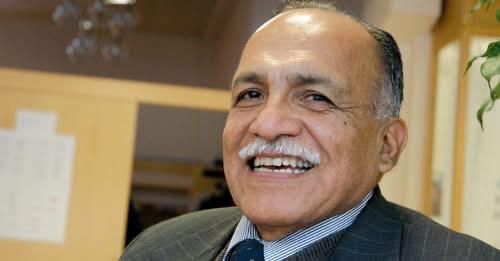
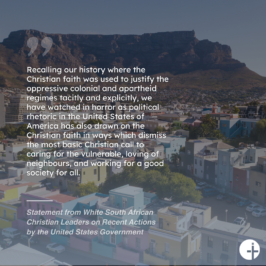
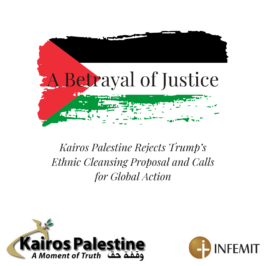

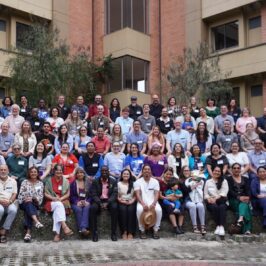
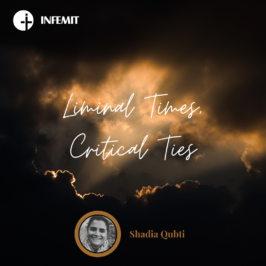
Leave a Reply